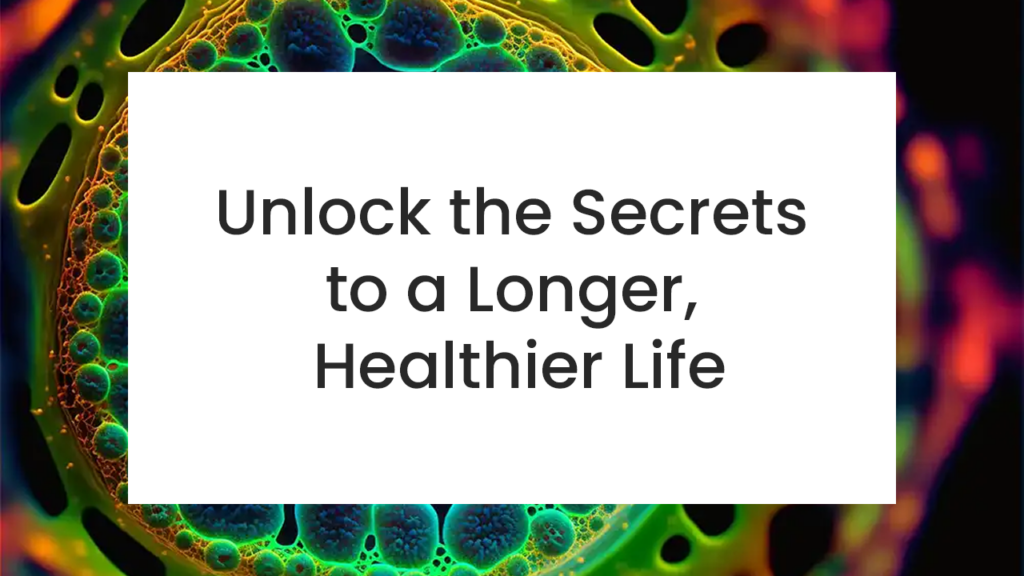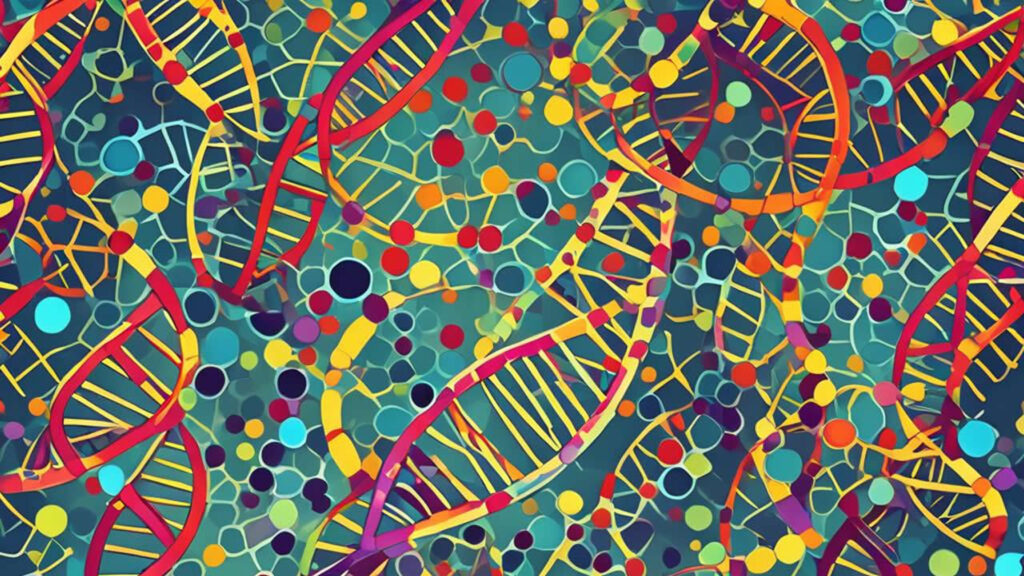Understanding Your Body: The Key to Anti-Aging and Longevity
Here are insights into the key macroscopic and microscopic systems and components of the body essential for anti-aging and longevity.Macroscopic Systems:
- Musculoskeletal System: This system includes bones, muscles, tendons, ligaments, and cartilage. Exercise strengthens muscles and bones, improves balance and flexibility, and reduces the risk of falls – all crucial for maintaining mobility and independence in later years.
- Cardiovascular System: The heart, blood vessels, and blood make up this system. Maintaining a healthy heart through diet, exercise, and managing blood pressure is essential for longevity.
- Respiratory System: Lungs and the breathing apparatus are part of this system. Good lung health ensures efficient oxygen intake, which is vital for overall health and cellular function.
- Digestive System: This system breaks down food and absorbs nutrients. A balanced diet rich in fruits, vegetables, and whole grains promotes gut health and nutrient absorption, impacting overall well-being.
- Immune System: This complex network defends the body against pathogens. A healthy immune system helps fight infections and reduces chronic inflammation, which is linked to aging.
- Endocrine System: Glands like the thyroid and pituitary produce hormones that regulate various bodily functions. Maintaining hormonal balance is crucial for metabolism, energy levels, and overall health.
- Nervous System: The brain, spinal cord, and nerves control movement, sensation, and thought. Maintaining cognitive function and managing stress through healthy habits can benefit mental well-being and potentially slow cognitive decline.
- Excretory System: The kidneys and urinary system remove waste products from the body. Proper kidney function helps maintain a healthy balance of electrolytes and fluids in the body.
- Reproductive System: This system allows for reproduction. Maintaining hormonal balance is important for overall health, even after reproductive years.
- Cells: The basic units of life. Healthy cells are essential for all bodily functions. Factors like nutrition, exercise, and adequate sleep promote cellular health and repair.
- Stem Cells: Unspecialized cells that have the potential to develop into different types of cells. While research on stem cell therapies for age-related conditions is ongoing, it’s still in its early stages.
- DNA & Genes: Our DNA acts like a blueprint containing the instructions for building and maintaining our bodies. Genes determine our susceptibility to certain diseases, physical characteristics, and even some behavioral tendencies. While we can’t change our genes directly, some emerging research areas explore how lifestyle choices might influence gene expression through:
-
- Epigenetics: This field studies how environmental factors and lifestyle choices can affect how genes are “read” and used by the cell. Epigenetics can act like dimmer switches on genes, turning them up or down without altering the underlying DNA code.
- Telomeres: Protective caps on the ends of chromosomes that shorten with each cell division. Shorter telomeres are associated with accelerated aging and a higher risk of chronic diseases. While research is ongoing, some studies suggest that certain lifestyle choices might influence telomere shortening rates.
- Chromosomes are the structures within the cell nucleus that house and protect our DNA.
- Organelles: These are like tiny organs within cells, each with a specific function. Some key organelles for longevity include:
- Mitochondria: The powerhouses of the cell, responsible for energy production. Mitochondrial dysfunction has been linked to aging.
- Ribosomes: Produce proteins essential for various cellular processes.
- Endoplasmic Reticulum: Folds, modifies, and transports proteins throughout the cell.
- Lysosomes: The cell’s waste disposal units, breaking down old or damaged cellular components for recycling.
- Microbiome: The trillions of bacteria, viruses, and other microbes living within us, particularly in the gut. A healthy gut microbiome is linked to better digestion, immune function, and potentially even mood regulation. It might also play a role in healthy aging.
- The Microbiome Beyond the Gut: While the gut microbiome is extensively studied, microbiomes exist on various body surfaces like the skin and may also play a role in overall health and aging.
- Growth Factors: These molecules can stimulate cell growth and repair, potentially impacting aging processes. Research on their role in antiaging is ongoing.
- Signaling Molecules: These molecules like hormones and neurotransmitters coordinate communication between cells, impacting various bodily functions.
- The Extracellular Matrix: This network of proteins and sugars provides structural support for cells and organs.
- Senescence: This is a state where cells stop dividing but don’t die. Senescent cells can accumulate with age and contribute to tissue dysfunction. Research on how to clear senescent cells is ongoing.
- The Role of the Immune System: A declining immune system with age (immunosenescence) is associated with increased susceptibility to infections and chronic diseases. Understanding how to support a healthy immune system throughout life is a growing area of research.
- The Gut-Brain Connection: The gut microbiome not only influences digestion but may also communicate with the brain through the gut-brain axis. This emerging field of research suggests a potential link between gut health, mental well-being, and cognitive function.
- Personalized medicine: Everyone’s body is unique, and what works for one person might not be the best approach for another. Personalized medicine and nutrition are evolving fields that aim to tailor recommendations based on individual genetic makeup and other factors.
- The Mind-Body Connection: Maintaining a positive outlook, social connections, and a sense of purpose in life can all contribute to well-being and potentially influence longevity.
- Holistic Approach: Taking care of all these systems and components is crucial for overall health and well-being.
- Lifestyle Choices: Diet, exercise, sleep, stress management, and avoiding harmful habits like smoking are the cornerstones of healthy aging.
- The Environment: Exposure to environmental toxins, pollution, and chronic stress can negatively impact health and accelerate aging. While some environmental factors might be difficult to control entirely, minimizing exposure when possible can be beneficial.
- Social connections & purpose in life: Increasingly recognized as important factors for well-being and potentially even longevity. Strong social bonds and a sense of purpose can contribute to reduced stress and a more positive outlook on life.
- Continual advancement of scientific research: Constantly uncover new information about the human body and the aging process. Staying up-to-date on credible sources can help you make informed decisions about your health.
- Rapamycin: This drug, originally developed as an immunosuppressant, has shown promise in extending lifespan in animal models. However, human studies are ongoing, and the long-term effects are still being investigated.
- Metformin: This medication is commonly used to treat type 2 diabetes, but some research suggests it may also have longevity benefits. However, more research is needed to confirm these findings.
- Dietary Mimetics: These are compounds designed to mimic the effects of calorie restriction without restricting calories themselves. Research is ongoing to determine their effectiveness and safety in humans.
- Senolytics: These are drugs being developed to clear senescent cells, which are cells that stop dividing but don’t die. Senescent cells can accumulate with age and contribute to tissue dysfunction. Clearing them may have potential benefits for longevity, but this area of research is still in its early stages.
- National Institute on Aging (NIA): Provides science-based information on aging research (https://www.nia.nih.gov/)
- SENS Research Foundation: Focuses on research on repairing the damage that causes aging (https://www.sens.org/)
- Mayo Clinic: Offers resources on healthy aging and how to take care of your body (https://www.mayoclinic.org/)


